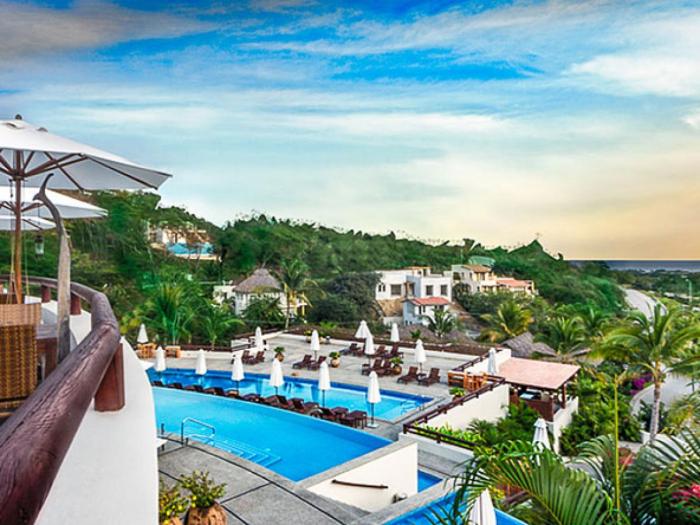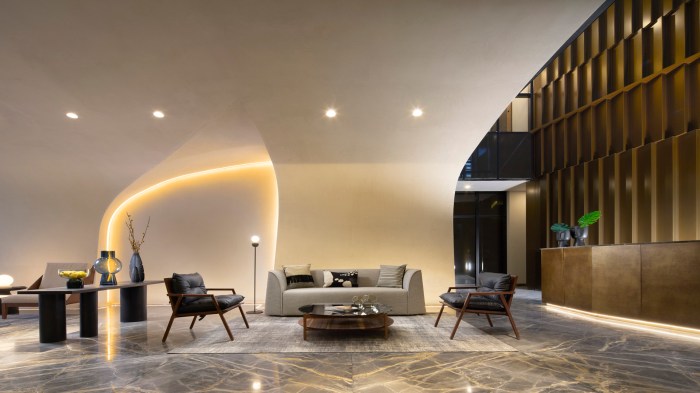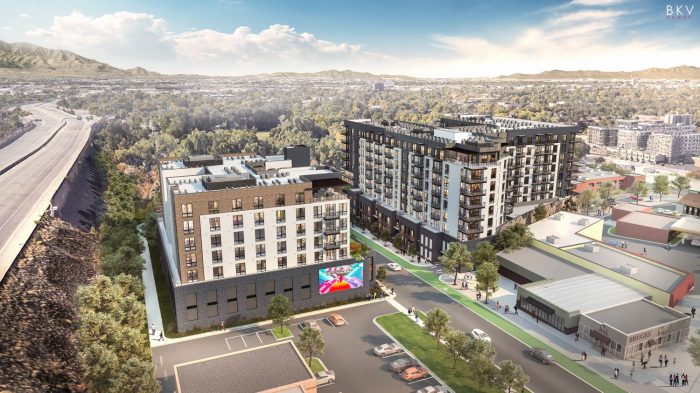Metro Hostel Boutique A Unique Stay
Metro hostel boutique sets the stage for an exciting new travel experience, offering a unique blend of budget-friendly accommodations and enriching city exploration. This type of hostel prioritizes location, often situated in the heart of bustling metropolitan areas, allowing guests to immerse themselves in the local culture. The boutique aspect emphasizes a refined and stylish atmosphere, differentiating it from standard hostels.
This detailed exploration of the metro hostel boutique concept will delve into its defining characteristics, services, marketing strategies, and operational aspects. It will also examine how these hostels can stand out from traditional budget hotels, highlighting the unique value proposition they offer. This will include analysis of pricing, amenities, and ideal locations, ultimately showcasing how metro hostel boutiques can provide an exceptional travel experience.
Defining the Metro Hostel Boutique Concept
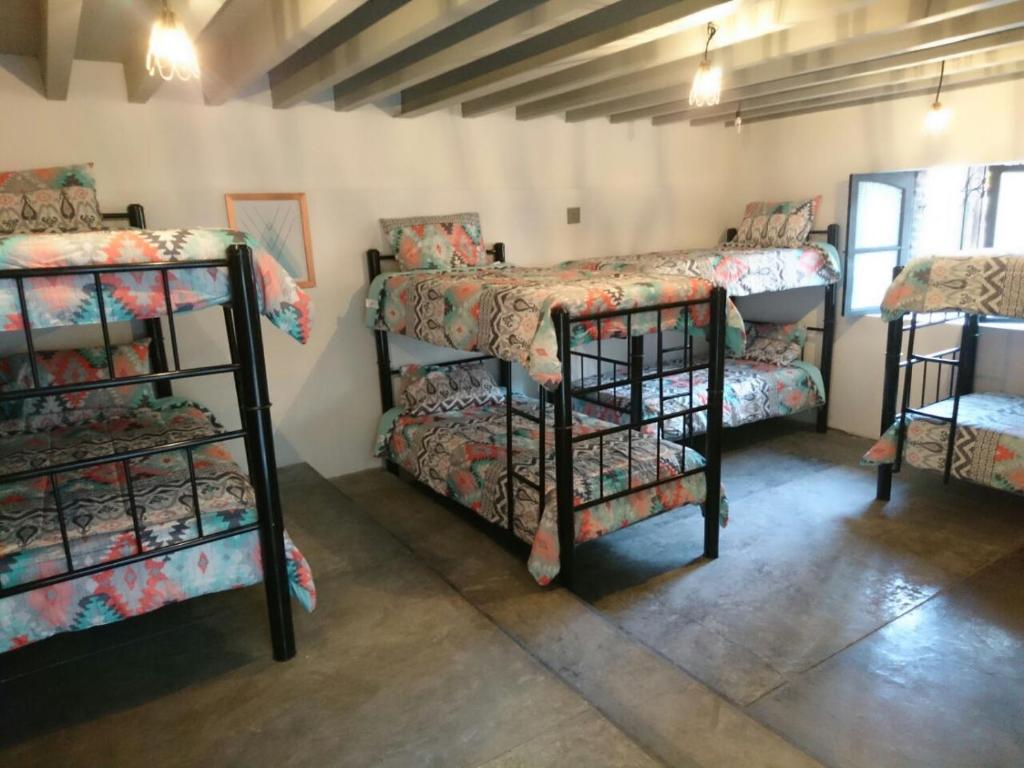
A metro hostel boutique represents a unique blend of hostel affordability and boutique hotel style. This accommodation type targets budget-conscious travelers seeking a comfortable, social, and stylish experience within a convenient urban location. It differentiates itself from traditional hostels and hotels by offering a more curated and refined atmosphere while retaining the communal aspects of hostel life.
The defining characteristic of a metro hostel boutique is its focus on providing a premium experience within a hostel setting. This means prioritizing comfortable accommodations, thoughtful design, and exceptional service, all while maintaining a friendly and welcoming atmosphere. This approach attracts travelers seeking a unique blend of social interaction and personalized comfort.
Unique Characteristics
Metro hostel boutiques are distinguished by their design aesthetics, which often feature modern or stylish decor and a focus on creating a comfortable and visually appealing environment. They are designed to appeal to a wider range of travelers, not just those on a strictly budget-conscious trip. This includes a blend of design and convenience, making them attractive to both solo travelers and groups.
Target Audience
The target audience for a metro hostel boutique extends beyond the traditional backpacker. It encompasses a broad range of travelers, including solo adventurers, couples, and small groups seeking a stylish and affordable urban experience. This adaptability makes the Metro Hostel Boutique appealing to various travel styles.
Distinguishing Features
Metro hostel boutiques stand apart from other accommodation options by offering a balance of social interaction and privacy. Unlike budget hotels, they encourage interaction amongst guests. Compared to traditional hostels, metro hostel boutiques provide more privacy and personalized amenities. This unique position in the market caters to travelers seeking a blend of affordability and refined comfort.
Amenities and Services
Metro hostel boutiques typically offer a range of amenities and services tailored to modern travelers. These include:
- Private rooms and dorm rooms: Providing a choice of accommodation types caters to various needs and preferences. This flexibility is key for maximizing guest satisfaction.
- High-speed internet access: Essential for today’s travelers, offering reliable internet connectivity throughout the hostel.
- Common areas with comfortable seating and social spaces: These spaces are designed to encourage interaction and relaxation amongst guests.
- Kitchen facilities: Providing guests with access to a shared kitchen allows for self-catering options, promoting cost-effectiveness.
- 24/7 reception desk and staff assistance: Ensuring that guests have access to assistance and support whenever needed.
- Bicycle rentals: Facilitating exploration of the local area by offering bike rentals, supporting sustainable travel.
Ideal Location and Environment, Metro hostel boutique
The ideal location for a metro hostel boutique is a central and vibrant area within a major city. Proximity to public transportation, attractions, and local amenities is crucial. This central location is key for maximizing accessibility and guest convenience.
The surrounding environment should be conducive to social interaction and exploration. The neighborhood should offer a variety of dining options, cultural attractions, and entertainment. This blend of convenience and vibrancy ensures a positive and enriching experience for guests. Furthermore, the design should incorporate elements that reflect the local culture.
Services and Amenities: Metro Hostel Boutique
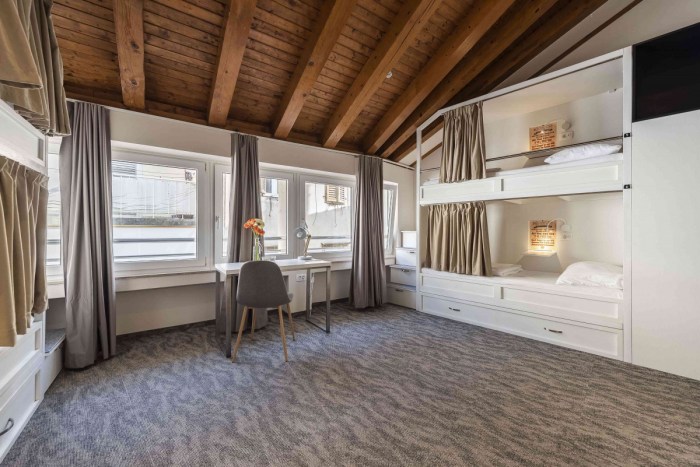
Source: thehostelgroup.com
Metro hostel boutiques cater to a specific segment of budget-conscious travelers seeking a unique and enriching experience beyond basic accommodation. These hostels prioritize a blend of affordability, social interaction, and a touch of luxury, distinguishing themselves from traditional hostels and other budget hotels.
Beyond simply providing beds and bathrooms, metro hostel boutiques offer a comprehensive range of services and amenities that enhance the guest experience. This approach often involves thoughtfully designed communal spaces and curated local experiences, creating a more immersive and memorable stay.
Communal Spaces
These spaces are crucial in fostering a sense of community within the hostel. They are designed to encourage social interaction among guests. Think comfortable common areas with comfortable seating, a well-equipped kitchen area, a dedicated workspace, and a lounge or games area. The atmosphere in these areas should be welcoming, inviting guests to relax, meet other travelers, and engage in conversations. A shared workspace, for instance, might include high-speed internet access, a printer, and comfortable desks, appealing to digital nomads or business travelers.
Private Rooms
Metro hostel boutiques offer private rooms, catering to those seeking more privacy or a quiet space for rest. These rooms typically include comfortable beds, personal storage space, and a private bathroom. The design of these rooms should be stylish and functional, providing a balance between comfort and affordability. Private rooms are a valued option, especially for couples, solo travelers seeking privacy, or those traveling with children.
Shared Facilities
Shared facilities like bathrooms, laundry rooms, and kitchens are essential parts of the hostel experience. The design of these spaces should focus on efficiency, cleanliness, and safety. High-quality linens and toiletries, along with well-maintained facilities, contribute to a positive experience.
Comparison with Other Budget-Friendly Accommodations
Metro hostel boutiques often offer a more refined experience compared to traditional budget hotels or hostels. While budget hotels prioritize necessities, metro hostel boutiques incorporate design elements and social features to elevate the guest experience. The social interaction and curated experiences in a metro hostel boutique can differentiate it from basic hostels, while the comfort and design of private rooms can be superior to standard budget hotels.
Pricing Comparison
Feature Metro Hostel Boutique Budget Hotel Basic Hostel
Private Room $50-100 $40-70 $20-40
Dorm Bed $25-50 N/A $15-30
Breakfast Included (often) Optional Optional
Amenities (e.g., tours, Wi-Fi) Included (often) Optional Optional
Unique Value-Added Services
Metro hostel boutiques frequently provide unique value-added services to enhance the travel experience. These might include guided city tours, local cooking classes, or curated experiences like a night out with local artists. Such offerings allow guests to delve deeper into the local culture and gain insights from locals, which is often more enriching than just visiting tourist spots. Examples include:
- Guided Walking Tours: Expert-led tours provide in-depth insights into the city’s history, culture, and hidden gems, enriching the travel experience beyond the typical tourist attractions.
- Local Cooking Classes: Guests learn to prepare authentic local dishes, connecting with the region’s culinary traditions and enjoying a hands-on experience.
- Meet-ups with Locals: These gatherings allow guests to connect with residents and gain valuable insights into the city’s culture and daily life.
These activities go beyond the usual amenities and add significant value to the stay, often at a reasonable cost, making them a worthwhile addition for budget-conscious travelers.
Marketing and Branding Strategies

Source: windows.net
Attracting and retaining guests in the competitive hostel market demands a multifaceted approach. A strong brand identity, coupled with effective marketing strategies, is crucial for success. This section presents Artikels’ key strategies for positioning a metro hostel boutique as a desirable choice for travelers.
Effective marketing strategies are essential for attracting and retaining guests, especially in a competitive market like hostels. These strategies need to resonate with the target audience and highlight the unique value proposition of the hostel boutique.
Marketing Strategies for Metro Hostel Boutique
A comprehensive marketing strategy should encompass various channels to reach potential guests effectively. This includes digital marketing, social media engagement, and collaborations with relevant partners.
- Digital Marketing Campaign: A well-structured website with high-quality visuals and detailed information about the hostel’s amenities, services, and location is paramount. This should be complemented by targeted online advertising campaigns on platforms like Google Ads, focusing on specific keywords related to metro locations and hostel stays. This will help attract potential guests actively searching for these services.
- Social Media Engagement: Active management of social media accounts, particularly Instagram and Facebook, is critical. Regularly posting high-quality photos and videos showcasing the hostel’s ambiance, facilities, and social events will engage the target audience. Run contests and giveaways to boost engagement and encourage user-generated content.
- Online Travel Agency Partnerships: Listing the hostel on popular online travel agencies (OTAs) like Booking.com and Hostelworld is essential for broader reach. Strategic pricing and compelling descriptions are key to attracting bookings through these platforms.
- Local Partnerships: Collaborating with local businesses, such as restaurants, bars, and attractions, can expose the hostel to a wider customer base. Cross-promotion opportunities and joint offers can drive traffic to both businesses.
Innovative Ways to Attract and Retain Customers
To stand out in a crowded market, hostels need to offer unique experiences beyond the standard amenities. This involves creating memorable guest experiences and fostering a sense of community.
- Themed Nights and Events: Organize themed nights, such as movie nights, game nights, or themed parties, to create a lively atmosphere and encourage social interaction among guests. This fosters a sense of community and creates lasting memories.
- Personalized Experiences: Offer tailored experiences for different guest segments. This could involve curated walking tours, local recommendations, or exclusive access to events for repeat customers.
- Guest Feedback and Reviews: Actively solicit guest feedback and respond to reviews. This allows for continuous improvement and builds trust with potential customers. Use reviews to highlight positive aspects and address any negative comments constructively.
Establishing Brand Identity and Visual Aesthetics
A strong brand identity is vital for recognition and memorability. A visually appealing aesthetic that aligns with the hostel’s target audience is essential.
- Unique Brand Voice: Develop a unique brand voice that reflects the hostel’s personality and values. This should be consistent across all marketing materials, from the website to social media posts.
- Visual Identity: Create a visually appealing logo and color palette that resonates with the target audience. This should be consistent across all marketing materials, from the website to social media posts. The hostel’s interior design should also reflect this visual identity.
- Target Audience Awareness: Understanding the target audience’s preferences, motivations, and lifestyle is crucial. This will inform the brand’s messaging, visual aesthetic, and overall experience.
Operational Excellence and Sustainability
A successful metro hostel boutique hinges on operational efficiency and a commitment to sustainability. Effective staff management, exceptional customer service, and precise inventory control are crucial for maintaining a positive guest experience and profitability. Environmental consciousness is not just a trend but a key component of long-term success and a positive brand image.
Staff Management
A well-trained and motivated staff is paramount to a positive guest experience. Comprehensive onboarding and ongoing training programs are essential to ensure consistent, high-quality service. Effective communication channels between staff members and management are crucial for quick problem resolution and a cohesive team dynamic. Clear job descriptions and performance evaluations will contribute to productivity and morale. This will also encourage employee retention, a vital element for a consistently high standard of service.
Customer Service
Exceptional customer service is the cornerstone of any successful hostel. This entails proactive engagement with guests, addressing concerns promptly and professionally, and anticipating their needs. Training staff in conflict resolution and active listening skills will improve the handling of difficult situations and enhance the guest experience. Positive interactions, both large and small, leave a lasting impression and encourage repeat business.
Inventory Control
Accurate and efficient inventory management is vital for cost control and minimizing waste. Implementing a robust system for tracking supplies, equipment, and amenities ensures that everything is accounted for. Regular stock checks and forecasting can help avoid shortages and overstocking, reducing operational costs. By optimizing inventory control, the hostel can maintain a smooth and efficient operation, allowing staff to focus on providing excellent service.
Financial Success and Profitability
Financial sustainability is crucial for the long-term viability of the hostel. A comprehensive business plan that includes Artikels projected costs, revenue streams, and potential expenses is necessary. Strategic pricing models, efficient cost management, and effective revenue generation strategies are essential for profitability. Exploring opportunities for additional revenue streams, such as offering tours or partnering with local businesses, can contribute to overall financial success. Analyzing key performance indicators (KPIs) and making necessary adjustments to the business strategy will ensure profitability.
Environmental Consciousness
Environmental consciousness is vital for a modern hostel. Reducing the hostel’s environmental impact demonstrates a commitment to sustainability and appeals to environmentally conscious travelers. Implementing energy-efficient practices, such as using LED lighting and low-flow fixtures, can significantly reduce energy consumption and water usage. Partnering with local businesses that prioritize sustainable practices can further enhance the hostel’s commitment to environmental responsibility. Encouraging guests to adopt eco-friendly practices, such as reducing their waste, can create a positive impact on the environment.
Pricing Models
| Pricing Model | Customer Segment | Description |
|---|---|---|
| Basic | Budget-conscious backpackers | Offers the most affordable accommodation with limited amenities. |
| Standard | Mid-range travelers | Provides a balance of comfort and affordability with a selection of amenities. |
| Premium | Luxury travelers and families | Offers upscale accommodations with premium amenities and services. |
| Group Bookings | Groups, organizations, and schools | Offers discounted rates and special packages for group bookings. |
A variety of pricing models caters to different customer segments, ensuring a profitable operation. The table above illustrates the potential range of pricing models, from basic to premium, with associated customer segments. These strategies can maximize profitability and guest satisfaction.
Outcome Summary
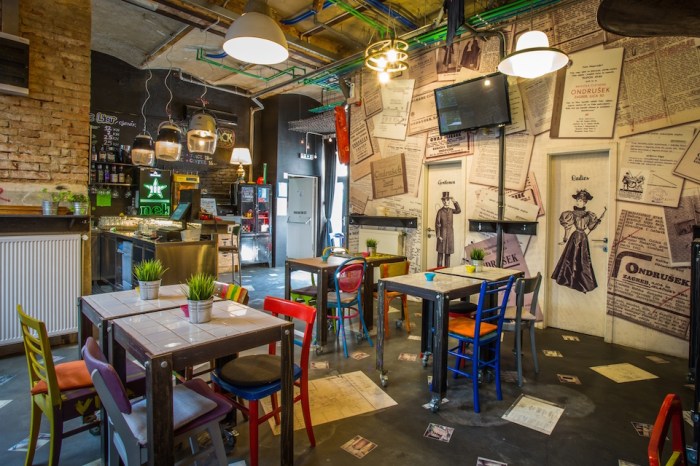
Source: cecilepoignant.com
In conclusion, a well-executed metro hostel boutique offers a compelling alternative to traditional accommodations, catering to budget-conscious travelers who crave a stylish and enriching experience. By combining a strategic location with unique amenities and effective marketing strategies, these hostels can thrive in a competitive market. The key to success lies in operational excellence, environmental consciousness, and a strong brand identity that resonates with the target audience. Ultimately, a metro hostel boutique can become a vibrant hub for both travelers and the local community.

